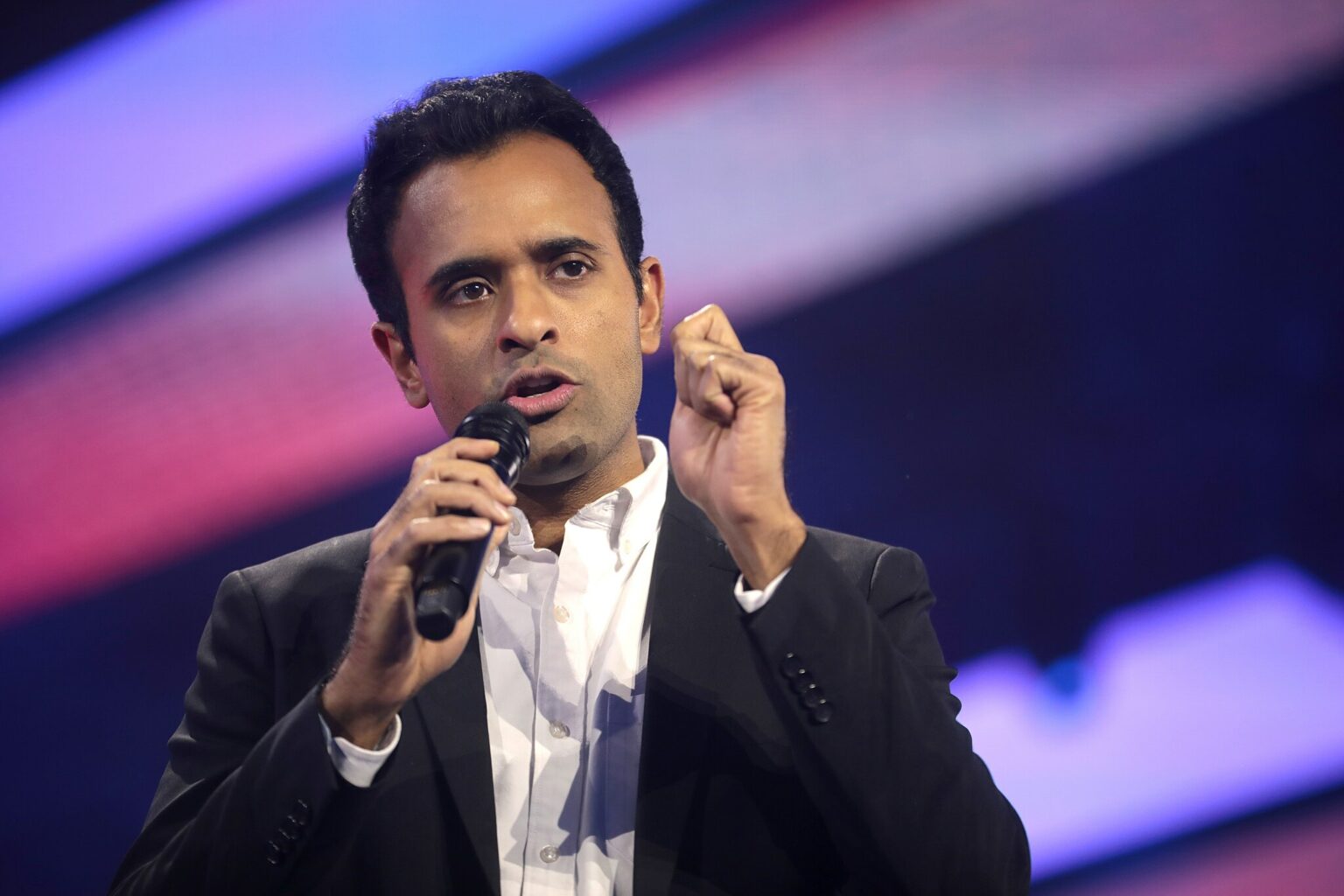Here’s what he means.
Vivek Ramaswamy strongly rejects being grouped together with other Republicans, particularly Florida Governor Ron DeSantis. In an effort to distinguish himself from the crowded field, he seeks to adopt a new label.
“I consider myself more of an unapologetic nationalist in this race,” Ramaswamy stated during his opening statements at a press event held at POLITICO’s Rosslyn, Va., headquarters. “You can call me a non-white nationalist, if you want.”
Ramaswamy, a 37-year-old Indian American, acknowledged that the term “non-white nationalist” was somewhat tongue-in-cheek, but he viewed it through an optimistic lens.
“Why do I identify as an American nationalist? I’m proud of it. I won’t apologize for it. And I want to revive it,” he declared.
He characterized the nation as being at a crucial “1776 moment,” where the United States must collectively decide whether to embrace the radical ideals that unite it or allow that opportunity to slip away. Without a proven leader to navigate through this challenging period, he hinted that the country is perilously close to the edge.
Ramaswamy commended America’s principles of the rule of law and self-governance. When confronted with the fact that the country was built on the practice of slavery, he acknowledged, “Is America hypocritical? Yes.”
Dressed in a sharp navy suit and crisp white button-down shirt, Ramaswamy questioned why countries like China, Iran, or Pakistan are never held accountable for their hypocrisy.
“I will be among the first to admit our hypocrisy,” he emphasized. “I believe it’s the best evidence that we are a nation founded on ideals. Most nations are founded on ethnicity, monarchy, language, or religion—not America.”
Regarding the potential challenge of embracing such terminology when the Republican Party is already perceived by many as embracing white nationalism, Ramaswamy conceded that it might initially alienate some voters. However, as a candidate, he remains undeterred.
“Am I aware that in the short term, this will make some people uncomfortable? Absolutely.”
He emphasized the importance of Americans recalibrating and becoming “comfortable with that discomfort” to emerge stronger on the other side.
Ramaswamy, known for his books “Woke Inc.” and “Nation of Victims: Identity Politics, the Death of Merit, and the Path Back to Excellence,” is part of a diverse GOP field that represents the most diversity in modern history.
Former U.N. Ambassador Nikki Haley, also of South Asian descent, South Carolina Senator Tim Scott, and syndicated conservative talk show host Larry Elder, who are Black, are all candidates of color seeking to win over a predominantly white Republican primary electorate.
According to the RealClearPolitics average, none of the GOP candidates of color are polling above 5 percent. Ramaswamy’s support stands at around 2.6 percent.
However, all of these candidates have rallied against “woke” ideologies and policies, a term used to describe cultural battles over diversity, equity, and inclusion.
During a recent campaign stop in Iowa, former President Trump expressed his dislike for the term “woke,” remarking that “half the people can’t even define it; they don’t know what it is.”
Ramaswamy acknowledged his contribution to the intellectual discourse surrounding opposition to woke ideology within the party but stated, “It’s not a label I’ve particularly embraced. Being described as a candidate in the potential emerging anti-woke lane is too limiting.”
